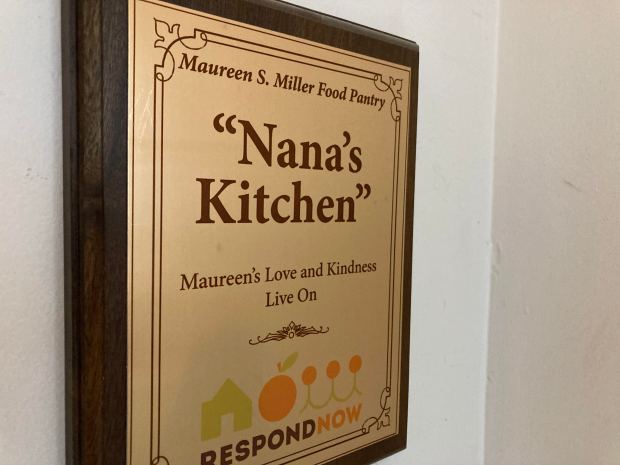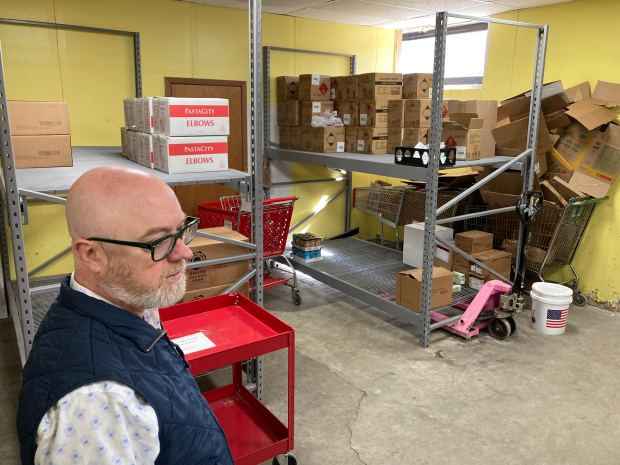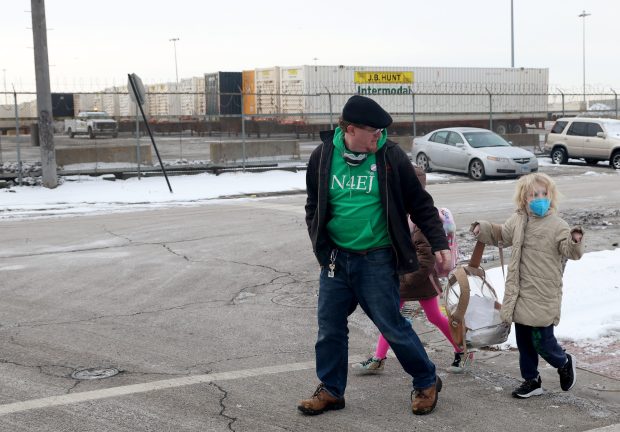A Chicago Heights nonprofit has received a federal grant of $850,000 that it will use to remodel and expand a food pantry that has seen a surge in demand in recent years.
Respond Now ultimately wants to create a supermarket-like experience for clients of the pantry and is preparing an expansion of the space, according to Carl Wolf, executive director.
Founded in 1969, Respond Now assists people in 22 south suburbs and focuses on areas including homelessness prevention, housing assistance and feeding families.
A check for the grant was presented recently by U.S. Rep. Robin Kelly, D-Matteson, who secured funding through the federal Community Project Funding process in the fiscal year 2024 appropriations legislation.
Food pantry customers now select from a menu of food items, with volunteers packaging it. The goal is to allow clients to browse through the selection of food, including perishable and nonperishable items. The pantry also stocks other items, such as diapers.
What had been simply bagging up groceries for food pantry clients is, for many pantries, moving to “a forward-thinking model that is that shopping experience,” Wolf said.
“You go through the pantry, looking at nutritional value of food, feel the vegetables and smell the fruit,” he said. “It speaks to the dignity of the people we serve, and they deserve the same experiences that we have in shopping at a supermarket.”
Respond Now plans to start work in a few weeks to expand the pantry’s footprint at 1439 Emerald Ave.
There will not be a physical expansion of the space, but “we are reworking the space to make it more efficient,” ultimately creating another entrance for food pantry shoppers, browse the goods and pick what they want, Wolf said.
Refrigerators and freezers with glass doors like a grocery story will be installed, along with displays of fresh fruits and vegetables, he said.
The work is expected to cost $1.2 million, and Respond Now is working to raise money for that aspect of the project, Wolf said.
It has garnered close to $1 million, including a donation of $600,000 from the Perkins Malo Hunter Foundation, Wolf said.
Expanding the space is expected to take about four months, then the next phase, involving creating the supermarket, will begin and is expected to be ready during the first half of 2025, Wolf said.
He said the pantry distributes food Monday through Friday, and that some 800 clients each month come to Respond Now for groceries.
Last year, the pantry served just under 7,500 clients, up from nearly 4,500 in 2022, Wolf said.
During 2019, the pantry served more than 9,900 people, then the numbers began to drop during the COVID-19 pandemic, Wolf said.
Part of that was due to food benefits allowances being increased during the pandemic, which have since gone away, and part of the more recent increase is due to a number of asylum-seeking families looking for help with groceries, Wolf said.
He said that Repond Now relies on the Greater Chicago Food Depository for most of its food donations, along with periodic food drives. He said the depository will work to secure the store fixtures for the new pantry.
Outside the pantry is a plaque dedicating it as “Nana’s Pantry” for Maureen Miller, a volunteer for Respond Now for many years, Wolf said. After her death, her family asked that the pantry be named in her honor, he said.

Wolf said that Respond Now, apart from the food pantry, has seen large growth over the past few years in demand for all of its programs, mostly in housing assistance.
The pantry, for example, was open three days a week and that was increased to five days during the pandemic, and staffing has increased from a dozen people 10 years ago to 27 now, Wolf said.
The building is modest, just north of Chicago Heights’ downtown business district. Wolf said any interior expansion won’t include more staff offices, although a conference room is being carved out of the larger space.
“What we learned from the pandemic is that people can work from home and do it efficiently,” he said.
Staff focused on housing assistance, for instance, are performing much of their work in the field, Wolf said.
mnolan@southtownstar.com




